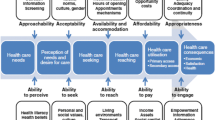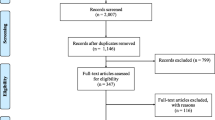Aim To explore how New Zealanders aged 65 years and older manage their medicines in their own homes, and determine the problems and concerns they might have with taking them. Setting Urban setting, Dunedin (population 120,000), New Zealand. Methods Twenty in-depth semi-structured interviews were undertaken of community-dwelling people 65 years and older. Sixty people, from a random sample of 80 from the electoral roll, met the recruitment criteria and were invited to participate. The first ten men and ten women agreeing to participate were interviewed. Interviews were taped and transcribed verbatim. Transcriptions were thematically coded and analysed using grounded theory and constant comparison. Main Outcome Measures Emerging themes were explored under the topics: accessing medicines, remembering to take medicines, following instructions, practical problems, adverse effects, concerns about medicines, and beliefs about medicines. Results Ten of thirteen men and 10/20 women contacted (61%) agreed to participate. The men were aged 71, 67–82 years (median, range) and women 77, 69–87 years. They were using 140 prescription medicines (median 7, range 3–16) and 34 non-prescription medicines (1, 0–6); mainly for the nervous system (28%), or the cardiovascular system (22%). Participants felt that they had good access to medicines, could afford them, managed them well, and had systems and routines to help them remember to take them. Occasional doses were missed following a change in routine. Practical problems were found such as difficulty swallowing or halving tablets. Three-quarters of participants had experienced adverse effects during their lives. These were managed by dose or drug changes or by taking practical measures. People were worried about adverse effects occurring whether or not they had experienced them previously. Beliefs about medicines were mainly positive, although some people disliked taking them. Conclusion The people 65 years and over in this study felt that they could access, afford and manage their medicines well. Although many participants had experienced adverse effects, their beliefs about medicines were mainly positive. Practical problems and concerns should be routinely enquired about and addressed, and prescribing and monitoring optimised to minimise adverse effects, in order to assist older people take their medicines.
Similar content being viewed by others
References
Royal College of Physicians. Medication for older people. Second edition. A report of a working party of the Royal College of Physicians. London: Royal College of Physicians; 1997. 48p. ISBN 1860160557.
Thomas CP, Ritter G, Wallack SS. Growth in prescription drug spending amongst insured elders. Health Aff (Millwood). 2001;20(5):265–77.
Hilmer SN, McLachlan AJ, Le Couteur DG. Clinical pharmacology in the geriatric patient. Fundam Clin Pharmacol. 2007;21(3):217–30.
Chan M, Nicklason F, Vial JH. Adverse drug events as a cause of hospital admission in the elderly. Intern Med J. 2001;31(4):199–205.
Veehof LJ, Stewart RE, Meyboom-de Jong B, Haaijer-Ruskamp FM. Adverse drug reactions and polypharmacy in the elderly in general practice. Eur J Clin Pharmacol. 1999;55(7):533–6.
Hanlon JT, Schmader KE, Koronkowski MJ, Weinberger M, Landsman PB, Samsa GP, et al. Adverse drug events in high risk older outpatients. J Am Geriatr Soc. 1997;45(8):945–8.
Gurwitz JH, Field TS, Harrold LR, Rothschild J, Debellis K, Seger AC, et al. Incidence and preventability of adverse drug events among older persons in the ambulatory setting. JAMA. 2003;289(9):1107–16.
Horne R, Weinman J. Patients’ beliefs about prescribed medicines and their role in adherence to treatment in chronic physical illness. J Psychosom Res. 1999;47(6):555–67.
Clifford S, Barber N, Horne R. Understanding different beliefs held by adherers, unintentional nonadherers, and intentional nonadherers: application of the Necessity-Concerns Framework. J Psychosom Res. 2008;64(1):41–6.
Fincke BG, Miller DR, Spiro A III. The interaction of patient perception of overmedication with drug compliance. J Gen Intern Med. 1998;13(3):182–5.
Gordon K, Smith F, Dhillon S. Effective chronic disease management: patients’ perspectives on medication-related problems. Patient Educ Couns. 2007;65(3):407–15.
Granas AG, Bates I. Patients’ understanding and management of their illnesses and prescribed medicines—a descriptive study. Pharm World Sci. 2005;27(4):321–8.
Roth MT, Ivey JL. Self-reported medication use in community-residing older adults: a pilot study. Am J Geriatr Pharmacother. 2005;3(3):196–204.
Kelly J, D’Cruz G, Wright D. A qualitative study of the problems surrounding medicine administration to patients with dysphagia. Dysphagia. 2009;24(1):49–56.
Dormuth CR, Maclure M, Glynn RJ, Neumann P, Brookhart AM, Schneeweiss S. Emergency hospital admissions after income-based deductibles and prescription copayments in older users of inhaled medications. Clin Ther. 2008;30(Spec No):1038–50.
Tamblyn R, Laprise R, Hanley JA, Abrahamowicz M, Scott S, Mayo N, et al. Adverse events associated with prescription drug cost-sharing among poor and elderly persons. JAMA. 2001;285(4):421–9.
Barat I, Andreasen F, Damsgaard EM. Drug therapy in the elderly: what doctors believe and patients actually do. Br J Clin Pharmacol. 2001;51(6):615–22.
Thompson ST, Stewart K. Prescription medication use practices among non-institutionalised older persons. Int J Pharm Pract. 2001;9(3):141–51.
Spiers MV, Kutzik DM, Lamar M. Variation in medication understanding among the elderly. Am J Health Syst Pharm. 2004;61(4):373–80.
Martin I, Hall J, Gardner T. Prescribing for patients aged 65 years and over in New Zealand general practice. N Z Med J. 2002;115(1164):U221.
Kairuz T, Bye L, Birdsall R, Deng T, Man L, Ross A, et al. Identifying compliance issues with prescription medicines among older people: a pilot study. Drugs Aging. 2008;25(2):153–62.
Britten N. Patients’ ideas about medicines: a qualitative study in a general practice population. Br J Gen Pract. 1994;44(387):465–8.
Haugbølle LS, Sørensen EW. Drug-related problems in patients with angina pectoris, type 2 diabetes and asthma-interviewing patients at home. Pharm World Sci. 2006;28(4):239–47.
WHO Collaborating Centre for Drug Statistics Methodology. ATC Index, 2009 [cited 25/11/09]. Available at http://www.whocc.no/atcddd/.
Pharmaceutical Management Agency. New Zealand Pharmaceutical Schedule August 2009. Wellington: PHARMAC; 2009. 212p. ISSN 1172-9376.
Lumme-Sandt K, Hervonen A, Jylhä M. Interpretative repertoires of medication among the oldest-old. Soc Sci Med. 2000;50(12):1843–50.
Pound P, Britten N, Morgan M, Yardley L, Pope C, Daker-White G, et al. Resisting medicines: a synthesis of qualitative studies of medicine taking. Soc Sci Med. 2005;61(1):133–55.
Bernsten C, Björkman I, Caramona M, Crealey G, Frøkjaer B, Grundberger E, et al. Pharmaceutical care of the Elderly in Europe Research (PEER) Group. Improving the well-being of elderly patients via community pharmacy-based provision of pharmaceutical care: a multicentre study in seven European countries. Drugs Aging. 2001;18(1):63–77.
Lee E, Braund R, Tordoff J. Examining the first year of medicines use review services provided by pharmacists in New Zealand. N Z Med J. 2009;122(1293):3566.
Blenkinsopp A, Bond C, Celino G, Inch J, Gray N. Medicines use review: adoption and spread of a service innovation. Int J Pharm Pract. 2008;16(4):271–6.
Lincoln YS, Guba EG. But is it rigorous? Trustworthiness and authenticity in naturalistic evaluation. In: Williams DD, editor. New directions for program evaluation, vol. 30. San Francisco: Jossey-Bass; 1986. p. 73–84.
Acknowledgements
We thank the people who participated in the study and Vicky Luscombe for administration and transcribing.
Funding
The study was funded by the Health Research Council of New Zealand (grant number FS 06-558).
Conflicts of interest statement
None to declare.
Author information
Authors and Affiliations
Corresponding author
Rights and permissions
About this article
Cite this article
Tordoff, J., Simonsen, K., Thomson, W.M. et al. “It’s just routine.” A qualitative study of medicine-taking amongst older people in New Zealand. Pharm World Sci 32, 154–161 (2010). https://doi.org/10.1007/s11096-009-9361-5
Received:
Accepted:
Published:
Issue Date:
DOI: https://doi.org/10.1007/s11096-009-9361-5




